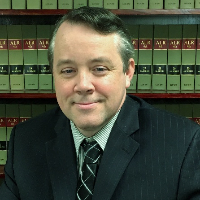Fyffe Estate Planning Lawyer, Alabama
Includes: Gift Taxation
Shannon Matthew Moore
✓ VERIFIEDEstate Planning, Divorce, Personal Injury, Criminal, Mass Torts
We are dedicated to maximizing results for our clients!
Shannon Moore was born in Huntsville, Alabama. He is a graduate of Grissom High School and he received his undergraduate degree from the University of... (more)
FREE CONSULTATION
CONTACTFREE CONSULTATION
CONTACTPaul W. Frederick
Mental Health, Wills & Probate, Estate Planning, Business Organization
Status: In Good Standing
Jason Patrick Statum
Bankruptcy & Debt, Litigation, Estate Planning
Status: In Good Standing Licensed: 15 Years
Richard Kent Henslee
Education, Estate Planning, Civil Rights, Corporate
Status: In Good Standing Licensed: 65 Years
Jack B. Sabatini
Motor Vehicle, Wills, Estate Planning, Bankruptcy, Criminal
Status: In Good Standing Licensed: 47 Years


